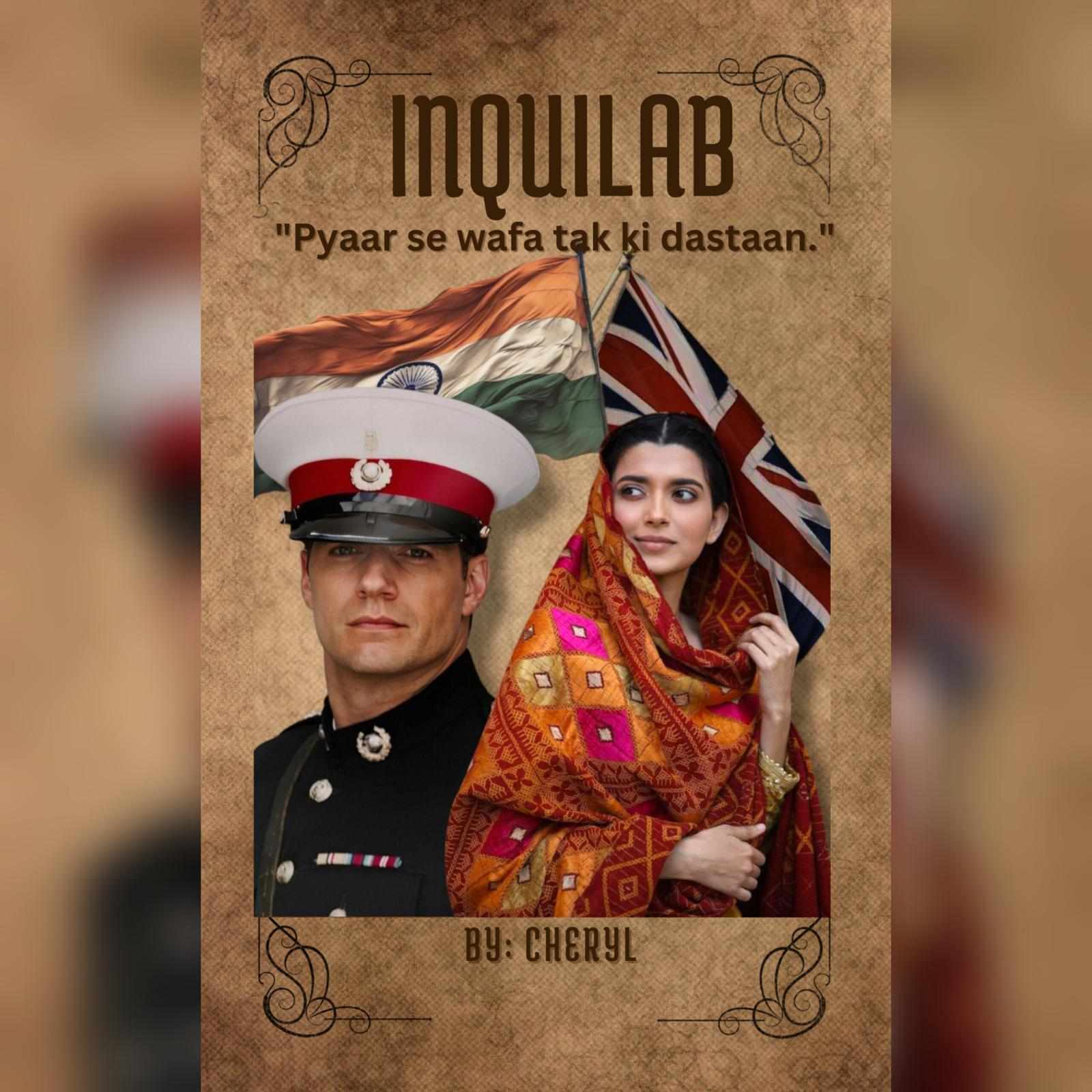
The city of Delhi was drenched in celebration.
Firecrackers lit the skyline, crowds chanted slogans, and victory songs echoed through every street.
Because tonight, Delhi had found its new Chief Minister: Vikramjit Singh Rathore.
But the truth was simple: this victory wasn’t his alone.
Behind the shining name on the banners lay the silent strategies of Yogeshwar Singh Rathore, Vikram’s elder brother, the mind that moved every piece on the political chessboard and the deep pockets of Shekhar Raichand, the man who turned power into profit and profit into power.
Together, the three had built an empire, one with roots deeper than politics itself.
Vikram sat on the chair of power, yes. But the hands that placed him there…belonged to Yogeshwar and Shekhar.
The Rathores had been a name in Indian politics for generations.
But like every dynasty, their light had dimmed with time, crushed by internal rivalries and the changing winds of democracy.
It was Yogeshwar’s cunning and Vikram’s charm that resurrected that dying legacy and none of it would’ve been possible without Shekhar Raichand’s money, influence, and reach.
Shekhar was different. He wasn’t born into politics, he bought his way into it.
While his friends inherited the Rathore legacy, Shekhar inherited ambition.
His father, a retired Major General, had always envisioned a disciplined life for his son, one built around honor, duty, and service to the nation.
But Shekhar was raised not in army barracks, but in boardrooms under the sharp eyes of his grandfather, one of the most renowned businessmen of his time.
After his demise Shekhar inherited his grandfather's legacy at a very young age and that changed everything.
Where his father saw patriotism, Shekhar saw opportunity.
Where others saw politics, he saw investment.
By the time he returned from London with an MBA and a ruthless vision, the small family business he had inherited had already started taking shape under his control.
In less than five years, he had turned his grandfather’s once modest trading company into a multinational corporate powerhouse with offices in Singapore, Dubai, and London.
At twenty-seven, Shekhar Raichand had built an empire. An empire of silence, strategy, and absolute control.
He didn’t just make money. He moved it discreetly, strategically in places where even power bowed its head.
Tonight, as the fireworks burst over the Delhi Assembly and chants of “Vikramjit Zindabad!” echoed across the capital, Shekhar stood quietly on the balcony of The Imperial Hotel’s top floor, a glass of whiskey in his hand, watching the chaos below.
To the world, it was a celebration.
To him, it was an investment well-placed.
“Cheers, gentlemen,” he said, turning to the two men behind him.
“One throne, three kings.” Vikramjit raised his glass.
Yogeshwar smirked. “And only one of us in the spotlight.”
“That’s exactly how it should be,” Shekhar replied, his tone calm, deliberate. “The light blinds people, Yogeshwar. Power only survives in the shadows.”
Vikram laughed. “And you love the shadows too much, don’t you, Shekhar?”
Shekhar’s lips curved into a faint smile. “Someone has to keep the lights from burning out.”
The three clinked their glasses, the sound sharp and clean like a pact sealed in the air.
Three men.
Three ambitions.
One empire.
The night was thick with the scent of expensive whiskey, cigar smoke, and celebration.
Delhi hadn’t slept. The capital glowed like a living flame. The firecrackers still burst over India Gate, drums echoing through Connaught Place, and in that royal suite, the new Chief Minister of Delhi raised his final toast.
The three of them sat surrounded by half-emptied bottles and laughter that came too easily. It wasn’t friendship born in privilege, it was forged in ambition, in long nights and careful betrayals of sleep.
Yogeshwar poured himself one last drink. “To Delhi’s new ruler,” he said, his voice calm but heavy with pride.
Shekhar raised his glass lazily. “To the man who’ll be blamed for every wrong decision we make.”
Vikram laughed, throwing his head back. “And to the two devils who’ll never let me make one alone.”
The clink of glass echoed like a promise.
Moments later, came a knock on their room’s door and Vikram smirked while putting his glass back on the table in front of him with a thud.
Yogeshwar caught the expression. “Don’t tell me you called someone again?”
Vikram grinned. “Come on, bhaisahab. I’m Chief Minister now. You expect me to sleep alone on my victory night?”
“You can start by acting married,” Yogeshwar shot back, his tone suddenly sharper. “The engagement with Chaudhary’s daughter is official. That alliance keeps the southern votes in our pocket. Don’t mess it up.”
Vikram snorted, already halfway to the door. “Engaged, not married, bhaishab. Until the vows are said, I’m still a free bird.” He winked. “And Delhi has too many cages to ignore.”
The door shut behind him with a careless laugh.
For a moment, silence filled the suite, the kind that only power could create.
Yogeshwar sighed, rubbing his temples. “He’ll never change.”
Shekhar leaned back, a faint smile curving his lips. “Don’t be too hard on him. For a man about to be politically shackled, one last flight isn’t a crime.”
“Why don’t you take such flights?” Yogeshwar shot back, his tone calm as still water.
“I could ask you the same question,” Shekhar chuckled, taking a slow sip of his drink. “Well, I know you’ll never answer mine, but unlike you, I’m not an ass, so I’ll answer yours.” He poured himself another drink, adding with a sly smile, “You could say this answer applies to both of us.”
Yogeshwar’s curious eyes waited for his response. Though he already knew what it would be, he still wanted to see if his friend truly knew him that well.
“We’re addicted to power, not women,” Shekhar said, raising his glass for a toast.
Hearing the right answer, Yogeshwar burst out laughing, and for a while, the two men sat in companionable silence, enjoying their drinks. Then Yogeshwar broke the silence.
Yogeshwar glanced at him, exasperated but curious. “You actually think this marriage will hold?”
Shekhar’s smile deepened, slow and knowing. “Of course it will. You’ve outplayed half the capital, Yogeshwar. That alliance was brilliant. The Chaudharies were finished, bankrupt in influence, dying in relevance but their name still means votes. You turned a corpse into a currency. I’d call that genius.”
A spark of pride flickered in Yogeshwar’s eyes. “You think too highly of me.”
“No,” Shekhar replied, setting down his glass. “I just know talent when I invest in it.”
They both chuckled, the kind of laughter that came from mutual respect, not affection.
Outside, the city cheered Vikram’s name, unaware that two men inside a dimly lit suite were the real architects of his rise.
The morning after victory always smelled the same, expensive perfume, cold coffee, and the metallic taste of ambition still hanging in the air.
Outside, Delhi roared.
The streets were a carnival of banners and petals, loudspeakers still blaring victory songs.
Vikram’s face smiled from every newspaper, every lamp post, every television screen.
“Vikramjit Singh Rathore: The People’s Choice.”
But people rarely chose.
They simply followed what they were shown.
And Shekhar Raichand was the man who decided what they would see.
Inside the Imperial suite, the chaos of last night had quieted. Cigarette stubs, spilled liquor, half-buttoned jackets on armchairs, remnants of power’s hangover.
Yogeshwar sat near the window, already immersed in phone calls, his tone sharp, his words precise.
Every sentence sounded like a chess move.
Vikram, now freshly showered, wore a crisp white kurta. He hummed softly, looking at all the bouquets sent with beautiful warm wishes by industrialists, journalists, film stars, everyone congratulating him as if they’d always known he’d win.
Shekhar sat apart, one leg crossed over the other, a half-read newspaper in hand and a cold espresso untouched beside him. The television murmured in the background, muted visuals of cheering crowds.
The ticker below flashed:
“Rathore Era Begins. Delhi’s New Hope.”
Shekhar smirked faintly. “Hope,” he murmured, “the most profitable illusion of all.”
“Press conference at eleven,” Yogeshwar announced, putting back the receiver on the phone. “Keep it short. Smile, thank the people. No wild promises.”
Vikram grinned. “So basically, don’t speak?”
Shekhar looked up, his tone smooth but edged. “Speak. Just remember the cameras don’t love anyone for free. They build you to break you later.”
Vikram’s smirk widened. “You worry too much, Shekhar. It’s my big day.”
“That’s exactly why I worry,” Shekhar said, setting the paper aside. “Power isn’t inherited, Vikram. It’s leased. And you start paying rent today.”
Vikram gave a dry laugh. “Not everything runs on money, Shekhar.”
“No,” Shekhar replied evenly, “but everything has a price. Even loyalty.”
The air stilled.
Yogeshwar raised a brow. “And friendship?”
Shekhar slipped into his blazer, the motion precise, mechanical. “That depends. How long will it survive once the lights fade?”
He moved to the balcony. Down below, a sea of people waved flags and shouted Vikram’s name.
To them, he was a hero.
To Shekhar, he was an asset on display.
“Enjoy it while it lasts,” Shekhar said quietly. “Crowds are loyal only to noise. Today they chant for you, tomorrow they’ll spit your name. The only thing that never changes…” he paused “…is who signs the cheques.”
Vikram laughed, raising his glass of juice. “And that would be you, Mr Raichand.”
Shekhar smiled, not with warmth, but control. “Until you can afford your own.”
The silence that followed wasn’t awkward, it was power, perfectly balanced among three men who knew how much they needed one another.
Outside, the cameras waited.
Vikram straightened his kurta, Yogeshwar fixed his pocket square, and Shekhar slid on his sunglasses.
The door opened. Flashbulbs exploded.
Vikram stepped out first, the face of the empire.
Yogeshwar followed, the mind behind it.
And a few steps behind them walked Shekhar Raichand, the invisible pulse of it all.
He didn’t need a title.
He didn’t need the spotlight.
Because power never belonged to the man on the throne.
It belonged to the man who built it.
•~•~•~•
The Raichand mansion glowed like quiet royalty that night.
Soft amber lights spilled through the carved windows; the garden fountains murmured faintly, and the faint scent of sandalwood drifted through the halls.
As Shekhar stepped inside, the butler announced, “Mr Shekhar Raichand has arrived.”
From the sitting room came his mother’s delighted voice. “Finally! My son is home. The whole of Delhi is talking about you tonight!”
“They are talking about Vikram. Not me.” Shekhar chuckled.
“And who made him?” Rajlaxmi Raichand came forward, elegant in her silk saree, pride sparkling in her eyes. His father, General Jagdish Raichand (Retd.), sat by the fireplace, posture still impossibly straight.
“So, it's Yogeshwar and your victory too.” Rajlaxmi said, caressing his head proudly.
And on the corner armchair, wrapped in her shawl, sat Kalyani Raichand, Shekhar’s grandmother, silver-haired and smiling.
“Well, look at you,” she said with a grin. “The man who makes headlines before dinner.”
Shekhar bent down and touched her feet. “It’s your blessings, Dadi. Without them, I’d still be chasing the headlines instead of making them.”
His father’s strict face softened. “I saw you on television this morning,” he said. “Calm, composed, confident. You carried yourself like a Raichand should.”
His mother added lovingly, “Now sit down and eat something before you collapse. You probably haven’t had a proper meal all day.”
The room filled with laughter. The tension of the outside world didn’t seem to belong here.
Just then, the landline on the corner table rang. The butler picked it up. “Madam, it’s an international call. Miss Niharika on line one.”
Rajlaxmi’s face lit up instantly. “Oh! Shekhar, it’s your sister from London. Take it before the line drops.”
Shekhar took the receiver, his voice turning soft. “Niharika….”
Her laughter crackled through the line. “Congratulations, bhai! You’re all over BBC India. Even my professors were talking about you!”
He chuckled. “Let’s hope for the right reasons.”
“Always for the right reasons,” she teased.
Rajlaxmi leaned closer to the receiver. “Niharika! Do they at least feed you properly there, or are you still living on sandwiches and excuses?”
“Maa!” she groaned. “It’s called university life, not starvation.”
Jagdish called out from behind, deadpan: “If she’s anything like her brother, she’s surviving on coffee and ambition.”
“Ambition’s calorie-free, Dad,” Shekhar replied dryly, earning a laugh from Dadi.
“Don’t worry,” Niharika said, giggling, “I’ll have proper food when I visit, as long as Dadi promises not to make me drink her magical turmeric milk.”
Kalyani chuckled, pretending to scold her. “One glass, and your brain started working well enough to get you into Oxford!”
Everyone burst out laughing. The house, usually wrapped in discipline and decorum, suddenly felt alive, like the warmth of old memories had returned for a visit.
Dinner followed soon after a brief conversation with Niharika. The table shimmered under chandelier light; the aroma of freshly baked rotis, butter chicken and cumin rice mingled with silver clatter.
Rajlaxmi fussed over him, placing food on his plate herself. “Eat properly, Shekhar. You can’t run Delhi on coffee and adrenaline.”
He smiled. “Work is a stronger addiction than either, Maa. And tonight, even Delhi seems drunk on it.”
Everyone laughed again. For once, he felt like the boy who had left home years ago, not the man who ruled half the capital.
But just as he lifted his fork, the butler returned, carrying the cordless landline. “Sir, an urgent call from the office.”
Shekhar frowned. “At this hour?” He took the phone.
The conversation was brief, his replies short. His expression changed, calm, but tight around the edges.
When he set the phone down, his mother asked gently, “What happened, beta? You were smiling a minute ago.”
He took a slow breath. “It’s the new industrial site, the land near Fatehpur beri I’ve been negotiating for. The owner’s refusing to sell. Says he won’t give up even an inch.”
His father looked up, interested. “Fatehpur beri? That’s close to the new highway, isn’t it?”
“Yes,” Shekhar replied. “It’s the perfect location for the manufacturing plant. Without that land, the whole project stalls.”
“What’s the man’s name?”
“Kulbhushan Rajawat. Small-town landowner. He doesn’t need the money, just the satisfaction of saying no.”
The General leaned back, thinking. “I’m driving to Jaipur this weekend. Fatehpur beri is on the way. I’ll talk to him personally.”
“Dad, I don’t want you to bother..”
“Nonsense,” his father interrupted, his voice firm but kind. “You’ve worked too hard for this project. Let me do this much. I’ll offer him whatever price he wants. Consider it done.”
Dadi reached over and placed her hand on Shekhar’s. “See, my boy? You build empires; we’ll build the ground beneath them.”
A rare smile touched Shekhar’s lips. “I couldn’t ask for more.”
For a moment, the family sat together, proud, content, unaware of the quiet storm that phone call had set in motion.
Outside, the Delhi night pulsed with distant traffic and the hum of streetlights.
Inside, Shekhar Raichand leaned back in his chair, thinking of a patch of land in Fatehpur beri that had just said no to him.
He didn’t know it yet, but that single refusal was about to change everything.














Write a comment ...